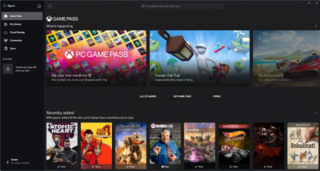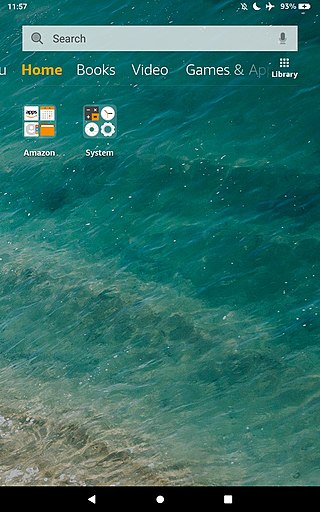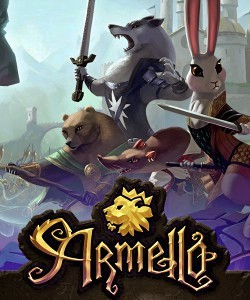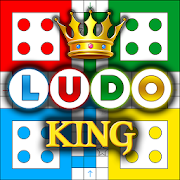
There have been numerous Monopoly video games based on the core game mechanics of Parker Brothers and Hasbro's board game Monopoly. They have been developed by numerous teams and released on multiple platforms over 35+ years.
The Android Package with the file extension apk is the file format used by the Android operating system, and a number of other Android-based operating systems for distribution and installation of mobile apps, mobile games and middleware. A file using this format can be built from source code written in either Java or Kotlin.

Boomzap Entertainment is a casual games developer registered in Singapore with a virtual office environment. It was formed in 2005 and has released 50 games to date that are ported on various platforms. Boomzap has developed for Microsoft Windows, Mac OS X, Nintendo DS, Wii, iOS, and Android. Its games are available on games portals such as Big Fish Games, Yahoo!, WildTangent, GameHouse, Google Play, Amazon, iTunes, Steam and others.
The Galaxy Store is an app store offering apps, games and exclusive themes and other customizations for mobile devices manufactured by Samsung Electronics. The service is primarily supplied pre-installed on Samsung Galaxy smartphones and tablets, and Galaxy Watch wearables. It requires a Samsung account to be used.

Epic Citadel is a tech demo developed by Epic Games to demonstrate the Unreal Engine 3 running on Apple iOS, within Adobe Flash Player Stage3D and using HTML5 WebGL technologies. It was also released for Android on January 29, 2013.

Construct is an HTML5-based 2D video game engine developed by Scirra Ltd. It is aimed primarily at non-programmers, allowing quick creation of games through visual programming. First released as a GPL-licensed DirectX 9 game engine for Microsoft Windows with Python programming on October 27, 2007, it later became proprietary software with Construct 2, as well as switching its API technology from DirectX to NW.js and HTML5, as well as removing Python and adding JavaScript support and its plugin SDK in 2012, and eventually switched to a subscription-based model as a web app.

Sentinels of the Multiverse is a cooperative card game published by Greater Than Games and released at Gen Con 2011. Players control a team of comic book-style heroes battling a villain. Each player controls one or more heroes, while a villain and environment deck each run themselves. A given game includes 3 to 5 heroes, 1 villain and 1 environment, which can be mixed and matched to create a number of different scenarios. The core game comes with 10 heroes, 4 villains, and 4 environments. The board game has also been made into a video game.

The Xbox app is an app for Windows 8, Windows 10, Windows 11, Android, iOS and Tizen. It acts as a companion app for Xbox video game consoles, providing access to Xbox network community features, remote control, as well as second screen functionality with selected games, applications, and content.

Plague Inc. is a real-time strategy simulation video game, developed and published by UK-based independent video game studio Ndemic Creations. The game was inspired by the 2011 film Contagion and the 2008 Adobe Flash game Pandemic 2. The player creates and evolves a pathogen to annihilate the human population with a deadly pandemic. The game uses an epidemic model with a complex and realistic set of variables to simulate the spread and severity of the plague. It was released on 26 May 2012 for iOS, 4 October 2012 for Android and 13 May 2015 for Windows Phone.

The GameStick is a discontinued home video game console developed by PlayJam. It is a microconsole the size of a USB flash drive that plugs directly into the back of a TV through an HDMI port and ships with its own Bluetooth controller. Users can download content from a curated storefront via Wi-Fi, with content stored locally for offline access. The device is powered by the PlayJam Games Platform and runs its own version of the Android operating system. It is portable and aimed at casual to mid-core gamers. Like the Ouya, it was funded through Kickstarter.

Fire OS is a mobile operating system based on the Android Open Source Project (AOSP). It is developed by Amazon for their devices. Fire OS includes proprietary software, a customized user interface primarily centered on content consumption, and heavy ties to content available from Amazon's storefronts and services.

Armello is a 2015 digital role-playing strategy board game developed by League of Geeks. Announced as an iPad title in September 2012, the game has been in development since mid-2011, with music by composers Lisa Gerrard and Michael Allen. Between April and May 2014, a successful Kickstarter campaign was started to help fund a port to Microsoft Windows as well as stretch goals to bring the game to Android and Windows tablets. The game was chosen to receive additional support from governmental funding agencies Screen Australia and Film Victoria.

Geometry Dash is a side-scrolling music platforming game series developed by Robert Topala. The game was released on 13 August 2013 on iOS and Android, and the Windows and macOS versions on 22 December 2014. In Geometry Dash, players control the movement of an icon and navigate music-based levels while avoiding obstacles such as spikes.

Cube Life: Island Survival is an indie open world sandbox survival video game developed and published by Cypronia. It was released for Wii U in June 2015. An HD remake was released for Steam in April 2018, for Android and iOS in August 2018, and for Nintendo Switch in December 2020.
Universal Windows Platform (UWP) is a computing platform created by Microsoft and introduced in Windows 10. The purpose of this platform is to help develop universal apps that run on Windows 10, Windows 10 Mobile (discontinued), Windows 11, Xbox One, Xbox Series X/S, and HoloLens without the need to be rewritten for each. It supports Windows app development using C++, C#, VB.NET, and XAML. The API is implemented in C++, and supported in C++, VB.NET, C#, F# and JavaScript. Designed as an extension to the Windows Runtime (WinRT) platform introduced in Windows Server 2012 and Windows 8, UWP allows developers to create apps that will potentially run on multiple types of devices.
WeGame is the flagship game portal of the Chinese company Tencent.

Ludo King is a free-to-play mobile game application developed by Gametion Technologies Pvt Ltd, a game studio based in Navi Mumbai, India. Gametion is owned by Vikash Jaiswal. The game is developed on the Unity game engine and is available on Android, iOS, Kindle, Windows Phone and Microsoft Windows platforms. The game is a modernization of the board game Ludo, which is based on the ancient Indian game of Pachisi.

Town of Salem is an online multiplayer game with social deduction and strategy elements. It was developed and published by indie game developer BlankMediaGames, and released on December 15, 2014. Early alpha and beta versions were browser-based and free-to-play. On October 14, 2018, the game was released for iOS and Android mobile devices after a successful and long-supported Kickstarter fundraiser.

GDevelop is a 2D and 3D cross-platform, free and open-source game engine, which mainly focuses on creating PC and mobile games, as well as HTML5 games playable in the browser. Created by Florian Rival, a software engineer at Google, GDevelop is mainly aimed at non-programmers and game developers of all skillsets, employing event based visual programming similar to engines like Construct, Stencyl, and Tynker.

There Is No Game: Wrong Dimension is a 2020 puzzle adventure video game developed by the French company Draw Me A Pixel and released for Windows and macOS on August 6, 2020, on Android and iOS on December 17, 2020, and on Nintendo Switch on April 14, 2021. It was inspired by creator Pascal Cammisotto's previous 2015 game jam-winning entry There Is No Game, which he developed under the alias KaMiZoTo. It has been considered a sequel or expansion to its predecessor.














